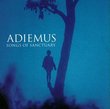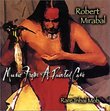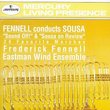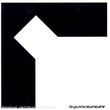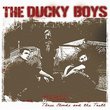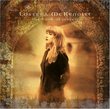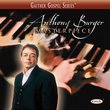| All Artists: Elisabeth Soderstrom, Ortrun Wenkel, Ryszard Karczykowski, London Philharmonic Orchestra, Royal Concertgebouw Orchestra, Bernard Haitink Title: Dmitri Shostakovich: Symphony No. 15 / From Jewish Folk Poetry - Bernard Haitink Members Wishing: 1 Total Copies: 0 Label: Decca Release Date: 8/8/2000 Album Type: Original recording reissued Genres: Pop, Classical Styles: Vocal Pop, Historical Periods, Modern, 20th, & 21st Century, Symphonies Number of Discs: 1 SwapaCD Credits: 1 UPC: 028942506923 |
Search - Elisabeth Soderstrom, Ortrun Wenkel, Ryszard Karczykowski :: Dmitri Shostakovich: Symphony No. 15 / From Jewish Folk Poetry - Bernard Haitink
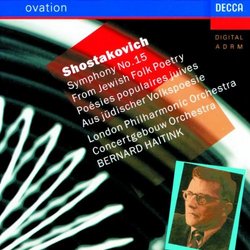 | Elisabeth Soderstrom, Ortrun Wenkel, Ryszard Karczykowski Dmitri Shostakovich: Symphony No. 15 / From Jewish Folk Poetry - Bernard Haitink Genres: Pop, Classical
No Description Available. Genre: Classical Music Media Format: Compact Disk Rating: Release Date: 8-AUG-2000 |
Larger Image |
CD DetailsSynopsis
Product Description No Description Available. Genre: Classical Music Media Format: Compact Disk Rating: Release Date: 8-AUG-2000 Similarly Requested CDs
|
CD ReviewsA sane approach P. SIMPSON | North Yorkshire, United Kingdom | 04/10/2003 (5 out of 5 stars) "You dont go to Haitink for extremes or quirkiness, so it may seem odd to recommend his recording of a work which some other conductors play as if it was the epitome of irony and quirkiness. But, just as his Mahler 6th of the early sixties offered a truly symphonic and comprehensible picture of that dark and tragic work, so this Shostakovich 15th brings us profundity mixed with tenderness viewed through sanity. And its that very sanity, which some critics (e.g. the authors of the Good CD Guide) deride, which makes the ethereal ending of the 15th so moving and yet so understandable, so human and universal in a way which more obviously edgy performances can't do. The sound is equally analytical and clear, both involving and yet also distancing in exactly the way the symphony is. There is a place for white-hot Shostakovitch interpretations, especially in the 15th, but there is also a place for this pensive and profoundly human one." A Fine Shostakovich Symphony No. 15 and a Rare Bonus Grady Harp | Los Angeles, CA United States | 11/14/2005 (5 out of 5 stars) "Shostakovich's Symphony No. 15 has always polarized audiences, even those who are committed admirers of his music. Some find the quotations from Rossini and Wagner intrusive and facetious if not cheap, while others (this listener for one) have grown into this magnificent elegy by the tortured Shostakovich and consider it one his greatest achievements. Bernard Haitink and the London Philharmonic Orchestra give a sparkling account of the work and while it does not have the ultimate pathos of, say the Rostropovich approach, the overall arc of the symphony is well thought and the inner components of the orchestral playing are superb. While it is never fair to compare a recorded version with a live performance, having just had the joy of hearing young Russian conductor Andrey Boreyko guest conduct the LA Philharmonic in what seems to be the definitive performance of this great work only serves notice that we have a new Shostakovich expert rising in the ranks. Hopefully he will survey all 15 symphonies on recordings! Symphony No 15 has everything Shostakovich did best in orchestration - pairing pizzicato strings against woodwind and brass choirs, embellishing sustained string chordal clouds with tinkling percussive instruments of every description, heavily grounded deep strings and tubas with solo instrument 'riffs', and above all creating occult messages about his personal conviction within the framework of the music. This symphony, being his last, ends with a movement based on the fate motif of Wagner exhaling to the final pages of soft high percussion ticking away at the clock of life that finally ends in death. It is overwhelmingly touching. Haitink conducts the Concertbegouw Orchestra in 'From Jewish Folk Poetry', a rarely heard, completely apropos companion piece for this recording. Soloists Elisabeth Soderstrom, Ortrun Wenkel, and Ryszard Karczykowski breathe life into these works and offer us a side of Shostakovich for the most part unknown to audiences, at least in this country. This additional work more than justifies choosing this CD to add the 15th to your library. Highly recommended. Grady Harp, November 05" Top-Notch Recording D. A Wend | Buffalo Grove, IL USA | 01/31/2008 (5 out of 5 stars) "I still have the LP of the world premiere recording of Dmitri Shostakovich's 15th symphony, which has unfortunately not been issued of CD. I have other recording of the symphony, notably Kirill Kondrashin's with the Moscow Philharmonic; I wanted to listen to the Bernard Haitink recording following a glowing review in the January, 2008 Gramophone, and I must agree that this is among the finest recording of this work.
The Fifteenth was written in 1971 and in mood is a descendant of the Ninth Symphony. Maestro Haitink adopts an even and considered tempo throughout the performance that places brings this intricate music into sharp focus. Shostakovich wrote for the orchestra, utilizing an expanded percussion section, in a very original way, mixing various motifs from other sources. He also deploys the orchestra quite differently mixing the percussion into the orchestra to create a jarring sound world; an example are the ending bars with the percussion array of wood block, tympani, triangle, bells castanets and tom-tom. Probably the most easily recognized motif is the William Tell music (in the first movement) and Fate music from Wagner's Gotterdammerung (in the final movement). Also in the final movement, Shostakovich introduces the Prelude from Tristan and Isolde and quickly shifts to a Glinka song "Do not tempt me needlessly." The motifs are skillfully worked into the music and do not dominate as much as illuminate the music. Shostakovich also pushes the instruments to extraordinary limits, as with the cello solo at the start of the second movement that begins in the lowest registers of the instrument; the extended trombone solo in the second movement is mournful and the bassoon in the third is sinister. The music is enigmatic and difficult for an orchestra to bring off successfully. Whatever program Dmitri Shostakovich had in mind for his music it was certainly more complicated than can be derived from mere listening, and music should not need a program to be understood, so it is just as well to sit back and enjoy without wondering if Shostakovich really meant the first movement to describe a toy shop. The Fifteenth is paired with the From Jewish Folk Poetry in the orchestrated version of 1964. The soloists - Elizabeth Soderstrom, Ortrun Wenkel and Ryszard Karczykowski are magnificent and the voices of Ms. Soderstrom and Ms. Wenkel blend so beautifully together in the first and second songs. Mr. Karczykowski sings beautifully and is perfectly expressive in "The deserted father" and tackles the difficulties of "A song of poverty" with gusto. From Jewish Folk Poetry is a colorful cycle that is unfortunately not recorded too often. The Concertgebouw play with great feeling and the recording is well balanced and clear. This is a must-have disc for anyone interested in Shostakovich's music. " |

 Track Listings (15) - Disc #1
Track Listings (15) - Disc #1